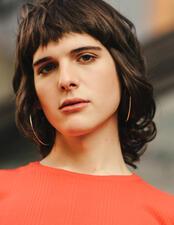
Hari Nef
Carrie Marcus Neiman
A born saleswoman, Carrie Marcus Neiman made her family’s department stores synonymous with high-end retail fashion. Dallas’s legendary Neiman Marcus specialty store owes its style, its personal brand of service, and its first cache of merchandise to Neiman, the fashion authority who helped launch a retailing concept.
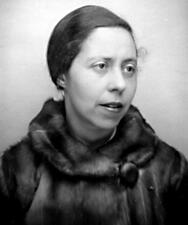
Irene Nemirovsky
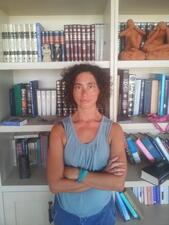
Haviva Ner-David
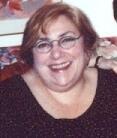
Sheryl Baron Nestel
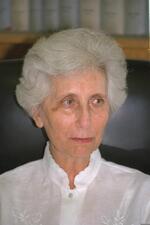
Shoshana Netanyahu
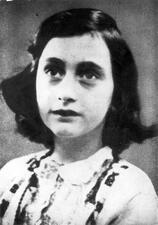
Modern Netherlands
Like Jewish women everywhere, Dutch Jewish women struggled with issues of assimilation, emancipation, and equality as both Jews and women. This article summarizes the conditions and challenges facing Jewish women in the Netherlands and the paths to progress and change they sought—education, work, activism, and literature, among others—from the nineteenth century to the present, including after the particular decimation of Dutch Jewry during the Holocaust.
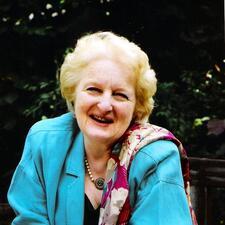
Julia Neuberger
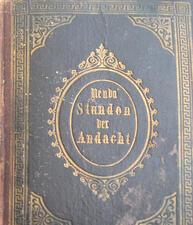
Fanny Neuda
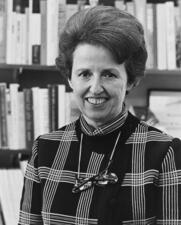
Bernice L. Neugarten
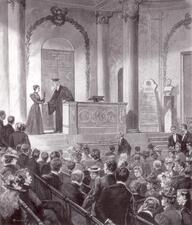
Elsa Neumann
Elsa Neumann was the first woman to receive a doctoral degree from the University of Berlin. She became prominent in Berlin’s scientific community, carrying out research for the newly established airship industry. In 1900 Neumann established a highly successful association that gave grants to female students.
Nelly Neumann
Nelly Neumann completed her doctorate in synthetic geometry in 1909 at Breslau University, making her one of the first women in Germany to obtain such a degree. In her lifetime she provided career guidance to female university students and worked as a secondary school teacher, tackling the intersection of philosophy and mathematics.
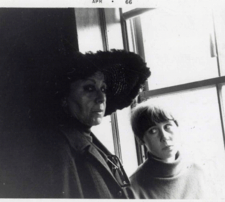
Louise Nevelson
Louise Nevelson belongs to a generation of Manhattan-based painters and sculptors whose careers coincided with the development of modernism in America. Nevelson created sculptures that audiences could both experience and see. Several of her pieces are now owned by the Whitney, the Brooklyn Museum, and MOMA.
Jewish Women in New Zealand
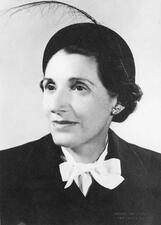
Estelle Newman
Isadora Newman
Isadora Newman was a celebrated writer, storyteller, poet, and artist. Born in New Orleans, her stories often focused on Creole and Black life and legend and folktales from foreign countries. Her books were translated into many languages and she later became an accomplished painter and sculptor.
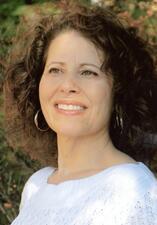
Lesléa Newman
Lesbian feminist writer Lesléa Newman made history in 1989 with her controversial children’s book, Heather Has Two Mommies. Inspired by Newman’s friend, a lesbian mother who complained that there were no children’s books with families that looked like hers, the book sparked national controversy. Newman has written countless books for children, adolescents, and adults on homosexuality, Jewish identity, eating disorders, and AIDS.
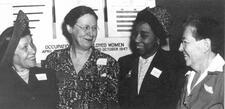
Pauline Newman
Pauline Newman played an essential role in galvanizing the early twentieth-century tenant, labor, socialist, and working-class suffrage movements. The first woman ever appointed general organizer by the International Ladies Garment Workers Union (ILGWU), Newman continued to work for the ILGWU for more than seventy years—first as an organizer, then as a labor journalist, a health educator, and a liaison between the union and government officials.
Niddah, Tractate
The tractate Niddah is concerned with the halakhic status of a woman’s body. It details and clarifies all of the rules of Niddah, which describes a woman in her menstruation period.
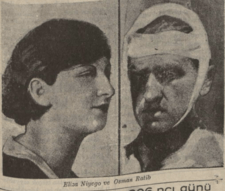
Elza Niego
In 1927, Elza Niego, a young Jewish woman was stabbed to death by an older Turkish man whose romantic advances she had repeatedly refused. Her murder sparked an intense emotional reaction from Jews, which the Turkish press found unacceptable, leading to antisemitic publications and outbursts, including the arrest of nine Jewish leaders.
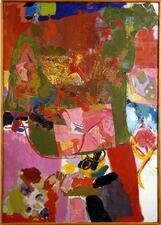
Lea Nikel
Lea Nikel, one of the central pillars of Israeli painting, had more than fifty years of magnificent creativity to her credit. She belonged to no art group or movement and over the years did not change her distinctive style, even when new styles became fashionable. Her works were exhibited throughout Israel from the early 1950s into the 2000s.
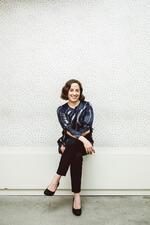
Niki Russ Federman
Niki Russ Federman is the fourth-generation co-owner of Russ & Daughters, the iconic appetizing shop founded in 1914 on the Lower East Side of Manhattan by her great-grandfather, Joel Russ. Known globally for its bagels, lox, babkas, and other Ashkenazi Jewish food delicacies, Russ & Daughters is believed to be the first business in America to include daughters in the name. As the fourth generation to own Russ & Daughters, Russ Federman has overseen its expansion while retaining an authentic legacy of Jewish food.
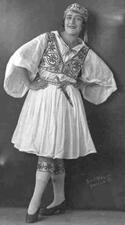
Rina Nikova
Rina Nikova, a pioneer of classical and biblical ballet in Palestine, distinguished herself mostly in character dances, which had a nationalist style influenced by ethnic folklore. Nikova established the first school for classical ballet in Tel Aviv and founded the Biblical Ballet, which was based on Yemenite folklore and focused on Biblical subjects.
Blanche Cohen Nirenstein
Descending from a family active in Jewish communal life, Blanche Cohen Nirenstein further developed her leadership abilities in a wide range of social science activities. Nirenstein found a myriad of ways to help Jewish widows and needy children, from founding a kosher summer camp to supporting Holocaust survivors.

Vered Nissim
Multi-disciplinary artist, curator, and art consultant Vered Nissim was born in Israel to Iraqi immigrant parents. She identifies as a Mizrahi feminist; her art revolves around her gender, ethnic, and class identities, and she aims to give voice to marginalized women in Israeli society.


